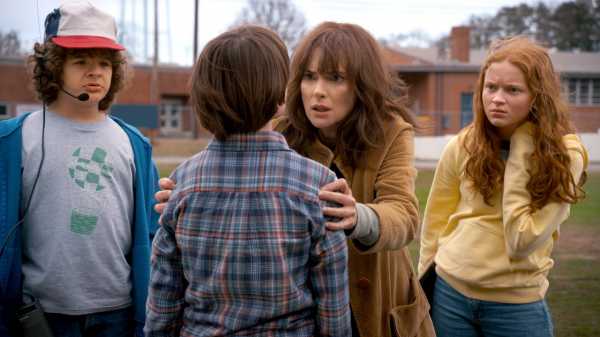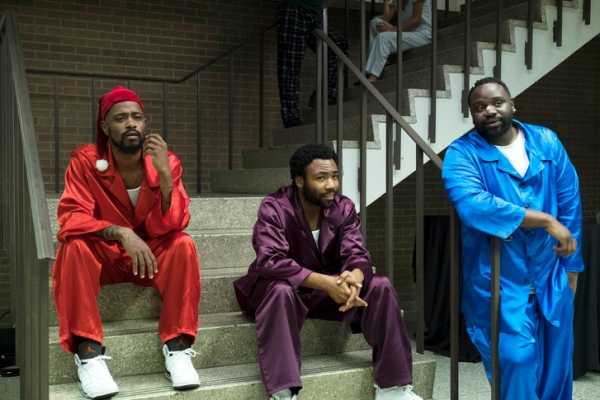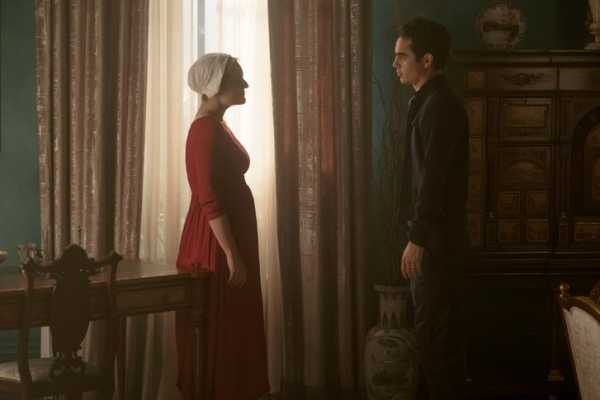
Last year, the Emmys were hosted by Stephen Colbert; this year’s
ceremony, which airs on Monday night, will be hosted by Michael Che and
Colin Jost, who anchor “Weekend Update” on “Saturday Night Live.” It’s
telling that, for the second time, the Primetime Emmy Awards, which
focus on drama and comedy, are being presented by specialists in comedic
fake news. This is a moment when television feels uncomfortably close to
reality, and vice versa.
There is, in other words, likely to be an undercurrent of seriousness at
the ceremony. The pure fun will come afterward, when we get to argue
about whether the prizes were deserved or misguided. (Arts awards, Louis
Menand
writes,
help remind us that “art is not a competition”: “We need prizes so that
we can complain about how stupid they are.”) Below you’ll find some of
The New Yorker’s coverage of this year’s Emmy nominees—the perfect
ammunition for those post-Emmy debates.
“American Crime Story”
In “Mr.
Big,”
Emily Nussbaum learns how Ryan Murphy became the most powerful man in
TV: “Murphy’s choices, perhaps more than those of any other showrunner,
have upended the pieties of modern television. Like a wild guest at a
dinner party, he’d lifted the table and slammed it back down.”
“The Americans”
Masha Gessen—the New Yorker staff writer who worked as the series’
translator—reflects on how the show captured her own American
experience.
“Atlanta”

Photograph by Guy D'Alema / FX
In “Donald Glover Can’t Save
You,”
Tad Friend profiles the series’ polymathic creator. “People accept me
now because I have power, but they still think, Oh, he thinks he’s the
golden flower of the black community, thinks he’s so different,” Glover
says. “But I am, though!”
“black-ish”
In “In Living
Color,”
Emily Nussbaum meets Kenya Barris, whose brassy and shrewd family
sitcom stands out for its rare directness about race and class.
“Curb Your Enthusiasm”
James Kaplan enters the tortured world of Larry David, in “Angry
Middle-Aged
Man.”
“Every relationship is just so tenuous,” David says. “One tiny
miscommunication or mistake and it could be all over.”
“Game of Thrones”
Emily Nussbaum explores the show’s surprisingly resonant politics in
“The Westeros
Wing.”
“GLOW”
Troy Patterson explains “the beauty of
GLOW”:
“Embracing silliness without apology and cliché without
self-consciousness,” he writes, it “invites viewers to disable their
senses of irony.”
“The Handmaid’s Tale”

Photograph by George Kraychyk / Hulu
Rebecca Mead profiles Margaret Atwood in “The Prophet of
Dystopia.”
“Atwood is a buoyant doomsayer,” she writes. “Like a skilled doctor, she
takes evident satisfaction in providing an accurate diagnosis.”
Leslie Jones
In “Ready for Prime
Time,”
Andrew Marantz meets Jones, who, after twenty-five years as a road
comic, found fame on “Saturday Night Live.” “People get hung up on
writing smart shit,” she says. “To me, it’s more about performance.”
“Stranger Things”
The show looks like it’s about the eighties—but, Joshua Rothman
explains, it taps into older, weirder American
myths.
“Westworld”
Emily
Nussbaum,
Troy
Patterson,
Aaron
Bady,
and Ian
Crouch weigh in on how the show “denies our humanity, one pitiless puzzle at a
time.”
Sourse: newyorker.com






